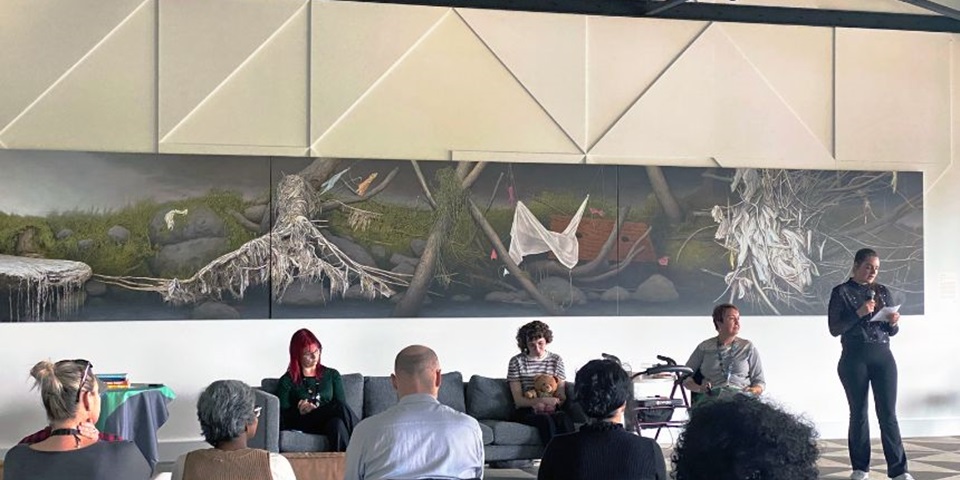News
'I felt truly understood for the first time': Disability Pride Month reflections

July was Disability Pride Month, and one of the ways the Murdoch University community celebrated was with the powerful ‘Our Voices’ panel, which explored what the month means to people with disabilities.
The panel included casual academic and PhD candidate Aaron Green, history student Mia Day, and EDCU portfolio administrative coordinator Tegan Eldridge, with media specialist Frances Thornton as host.
A wide range of topics were covered, from accessibility and inclusivity in life, work and study, to pride and community.
Graduate diploma in psychology student Chantelle Hardeman gave a speech about what disability pride means to her, sharing her personal experience of disability and neurodiversity.
'You are who you are meant to be'
Chantelle got her autism diagnosis at 25 years old, and said she wished she could go back and tell her younger self that she “never needed to fix what was never broken”.
"For me, and other disabled people who get what it’s like to be ‘different’, pride means talking to the little girl who loved stories and telling her she is who she’s meant to be – as I was constantly reprimanded for being myself,” Chantelle said.
She said the years she had spent masking and trying to fit herself into a box, and the exhaustion that came with it, were finally explained and recognised during her assessment.
“I was shocked with how well the assessor understood me, more than anyone else ever had – even myself.
“This moment will stick with me forever, during the session, the assessor said ‘you spent the whole time trying to make me feel comfortable. You probably do that with everyone, which must be exhausting’.”
Chantelle said in this moment she felt “truly understood for the first time”, and realised how much mental load she had been taking on for other people’s comfort.
Throughout her education, Chantelle said she had also had to work at least twice as hard to not only read content through a neurotypical lense, but also to communicate in a way that could be easily understood by neurotypical people.
I think my thoughts work like a spiderweb – that's how I have a vivid imagination, solve problems creatively, learn and make decisions,” she said.
“My brain takes in a lot of information at once, but thinking in a spiderweb makes it hard to know what to keep and what to use. People don't see how my mind works like a spiderweb, so they miss a big part of what I’m capable of, which makes me feel inadequate.”
Achieving her psychology degree, pursuing postgraduate studies and working with children has taught Chantelle that her ways of thinking are not only unique, but they are also wonderful.
“Working with kids, my spiderweb thinking really shines. I still find it tough to use the right parts of my brain for success, but I’m working hard,” Chantelle said.
“It’s not always perfect, and not everyone wants to understand – but there are people who will.
“With pride, I can share my spiderweb with others, it’s the hidden beauty of my mind.”
Looking ahead into an inclusive future
Chantelle said that while the disability community provided her with a much-needed safe space, there was still work to do within the wider community.
“It would be so meaningful if non-autistic people listened to us with curiosity and accepted all our communication and support needs. I think the responsibility for better communication should shift to non-autistic people in future to make it easier to work together.
We want to share our spiderwebs, if people listen and autistic people are given a chance to feel safe, we can share human pride together.”
She added that there was also a need to emphasise intersectionality in disability pride, including the acknowledgement of systemic barriers facing BIPOC in the disability space.
"My overall answer – what does disability pride mean to me? I think it is a work in progress. But let’s work together.”
News
'I felt truly understood for the first time': Disability Pride Month reflections
Posted on
Topics